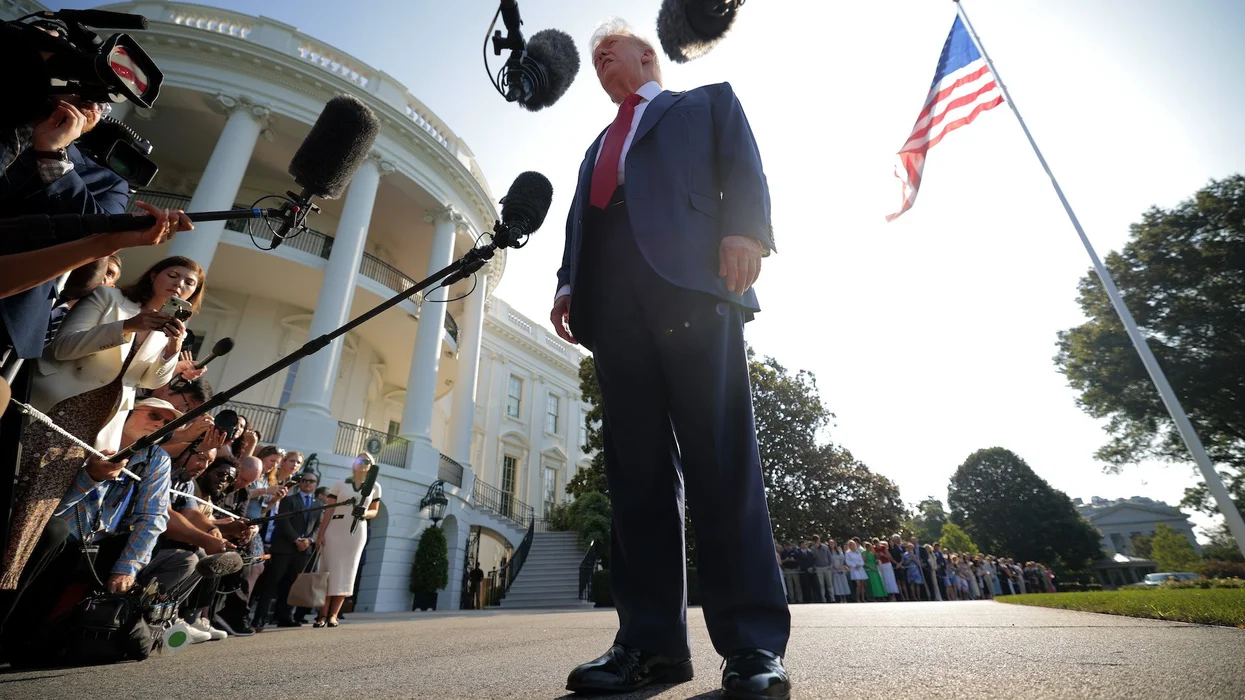© 2025 Blaze Media LLC. All rights reserved.
 WASHINGTON (AP) -- The U.S. unemployment rate fell last month to its lowest level in more than two and a half years, as employers stepped up hiring in response to the slowly improving economy.
WASHINGTON (AP) -- The U.S. unemployment rate fell last month to its lowest level in more than two and a half years, as employers stepped up hiring in response to the slowly improving economy.
The Labor Department said Friday that the unemployment rate dropped sharply to 8.6 percent last month, down from 9 percent in October. The rate hasn't been that low since March 2009, during the depths of the recession.
Still, 13.3 million Americans remain unemployed. And a key reason the unemployment rate fell so much was because roughly 315,000 people had given up looking for work and were no longer counted as unemployed.
Employers added 120,000 jobs last month. And the previous two months were revised up to show that 72,000 more jobs added - the fourth straight month the government revised prior months higher.
Private employers added a net gain of 140,000 jobs last month. Governments, meanwhile, shed another 20,000 jobs, mostly at the local and state level. Governments at all levels have shed almost a half-million jobs in the past year.
More than half the jobs added were by retailers, restaurants and bars, a sign that holiday hiring has kicked in. Retailers added 50,000 jobs, the sector's biggest gain since April. Restaurants and bars hired 33,000 new workers. The health care industry added 17,000.
The presidential election is less than a year away, which means President Barack Obama will almost certainly face voters with the highest unemployment rate of any president since World War II.
And Europe's financial crisis threatens to slow U.S. growth next year. A recession in Europe could reduce U.S. exports, hurt global financial markets and dampen business confidence.
Paul Ashworth, an economist at Capital Economics, estimates that the economy will expand 2.5 percent in the last three months of this year. But he expects growth to slow to 1.5 percent in 2012, partly because of the crisis in Europe. And if Congress fails to extend the Social Security tax cut and long-term unemployment benefits this month, growth is likely to slow even further.
Weak job growth means companies don't have to raise pay to keep their employees. Fewer jobs and lower pay leaves consumers with less money to spend. That's holding back economic growth.
In the past three months, the economy has added an average of 143,000 net jobs per month. That's enough to keep up with population growth and better than the previous three months, when the economy averaged just 84,000.
Other recent economic reports have been positive, too.
Factory output expanded last month. Retailers reported a strong start to holiday sales over the Thanksgiving weekend, consumer confidence surged in November to the highest level since July, and Americans' pay rose in October by the most in seven months.
Car sales also rose sharply in November, normally a lackluster month for the auto industry. Chrysler, Ford, Nissan and Hyundai all reported double-digit gains on Thursday, compared to a year ago.
Want to leave a tip?
We answer to you. Help keep our content free of advertisers and big tech censorship by leaving a tip today.
Want to join the conversation?
Already a subscriber?
Billy Hallowell is a digital TV host and interviewer for Faithwire and CBN News and the co-host of CBN’s "Quick Start Podcast."
Billy Hallowell
Billy Hallowell is a digital TV host and interviewer for Faithwire and CBN News and the co-host of CBN’s "Quick Start Podcast."
more stories
Sign up for the Blaze newsletter
By signing up, you agree to our Privacy Policy and Terms of Use, and agree to receive content that may sometimes include advertisements. You may opt out at any time.
Related Content
© 2025 Blaze Media LLC. All rights reserved.
Get the stories that matter most delivered directly to your inbox.
By signing up, you agree to our Privacy Policy and Terms of Use, and agree to receive content that may sometimes include advertisements. You may opt out at any time.





